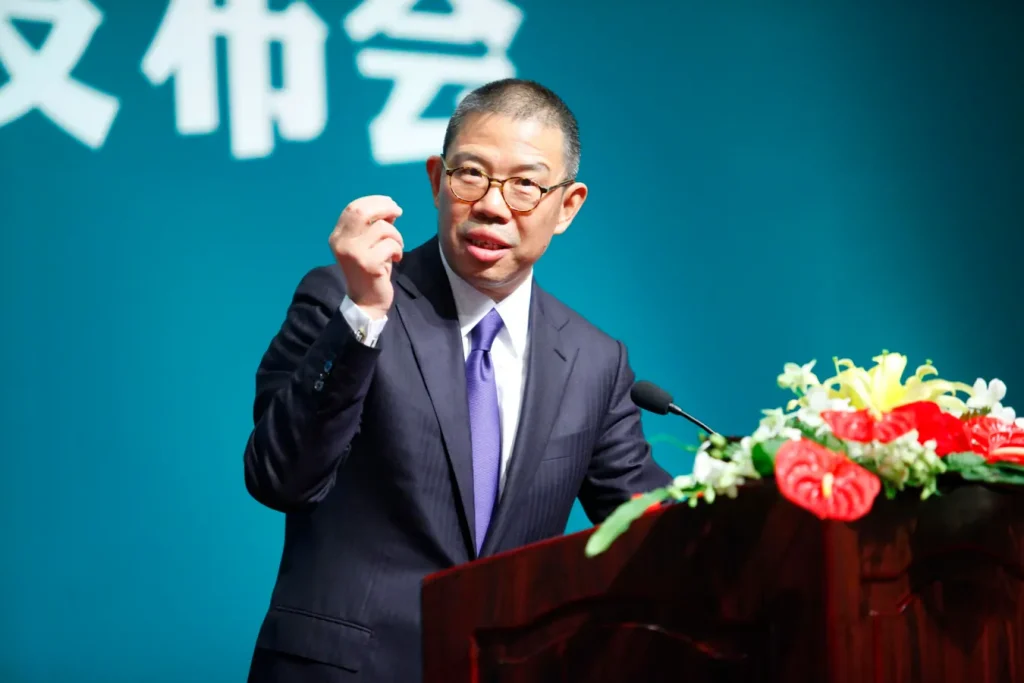China’s Richest 2025: A Thriving Landscape Amid Economic Challenges
In a remarkable display of resilience and growth, China’s stock markets have experienced a significant upswing, propelling the collective wealth of the country’s 100 richest individuals to an impressive $1.35 trillion, a substantial increase from $1.03 trillion the previous year. This 31% growth comes despite a sluggish economy and ongoing trade tensions with the United States, demonstrating the adaptability and innovation driving China’s wealthiest entrepreneurs. The benchmark CSI 300 index climbed 15% since the last measurement of fortunes, with two-thirds of those on the prestigious list seeing their wealth expand. The AI boom and anticipation of government stimulus measures have been key catalysts for this financial renaissance, creating new opportunities in technology, consumer goods, and services sectors that have proven particularly lucrative for forward-thinking business leaders.
At the pinnacle of this wealth mountain stands Zhong Shanshan, founder of Nongfu Spring, who maintains his position as China’s richest person for the fifth consecutive year. Zhong exemplifies the power of consumer-focused businesses in China, with his water and beverage giant reporting double-digit growth in both net profit and revenue during the first half of 2025. This stellar performance boosted his personal fortune by an astonishing $26.3 billion, bringing his total net worth to $77.1 billion. His success story represents the continuing strength of China’s domestic consumption market, even as the broader economy faces headwinds. Behind him, ByteDance cofounder Zhang Yiming climbed to second place after adding $23.7 billion to his coffers, reaching a net worth of $69.3 billion. Zhang’s ascent was aided by a fortunate turn of events when ByteDance’s popular TikTok app narrowly avoided a U.S. shutdown through a newly formed joint venture company with majority American ownership—a creative solution to geopolitical complications that threatened one of China’s most successful global digital exports.
The technology sector continues to dominate China’s wealth landscape, with Ma Huateng, chairman of Tencent Holdings, occupying the third position despite his fortune rising by more than a third to $62.8 billion. Tencent’s shares jumped over 40% in the past year, driven by strong sales of online games and increased advertising revenue through its ubiquitous Weixin (WeChat) platform. The company’s strategic investments in artificial intelligence have positioned it at the forefront of China’s tech innovation ecosystem. This technological revolution is creating new billionaires at an unprecedented rate, as evidenced by newcomers like Liang Wenfeng, founder of DeepSeek, who debuts at No. 34 with a net worth of $11.5 billion. DeepSeek’s January launch of a cost-effective AI model sent Chinese tech stocks soaring and established the company as a serious global competitor in the artificial intelligence arena. Similarly, Zhou Chaonan, founder of data center operator Range Intelligent Computing Technology Group, joined the ranks at No. 85 with $5.3 billion, highlighting the critical infrastructure supporting China’s digital transformation.
Perhaps the most dramatic wealth creation story of the year belongs to Wang Ning, founder of Pop Mart International Group, whose fortune soared more than fourfold to reach $22.2 billion. The global phenomenon of Labubu dolls transformed Wang into the list’s biggest percentage gainer, demonstrating how Chinese cultural exports and consumer products can achieve worldwide appeal. In the semiconductor space, Cambricon Technologies chairman and CEO Chen Tianshi nearly tripled his net worth to $21 billion, with his AI chipmaker reporting its first half-year net profit of $140 million since its 2020 IPO. Dubbed “the Nvidia of China,” Cambricon represents China’s ambitions to develop indigenous capabilities in crucial technologies amid growing international competition and supply chain concerns. These success stories illustrate how Chinese entrepreneurs are capitalizing on both domestic consumption trends and global technological shifts to build substantial fortunes.
Not all stories on the list reflect unbridled success, however, as China’s economy continues to undergo structural adjustments and competitive pressures. In the most dramatic wealth decline of the year, Meituan chairman and CEO Wang Xing saw his fortune shrink by $6.2 billion—over 42%—to $8.4 billion as the food-delivery platform faced intense competition from Alibaba and JD.com in a bruising price war. More strikingly, Wang Jianlin, chairman of Dalian Wanda Group and formerly China’s richest person, dropped off the list entirely as his property conglomerate struggled with a liquidity crisis, forcing the sale of significant assets. His fall from grace reflects the broader challenges facing China’s real estate sector, once a reliable wealth generator that has now become a source of financial instability for many previously successful tycoons. These contrasting fortunes underscore the evolving nature of wealth creation in China, as the economy transitions from property-led growth to innovation and consumption-driven development.
Despite these challenges, the overall picture for China’s ultra-wealthy remains remarkably positive, with the minimum net worth required to make the prestigious list rising to $4.6 billion from $3.9 billion last year. This higher threshold for inclusion reflects both the growing concentration of wealth among China’s business elite and the continued emergence of new fortunes in cutting-edge sectors. Six tycoons who had previously fallen off the list made triumphant returns, including Qian Dongqi, founder of robot vacuum maker Ecovacs Robotics, whose company reported a 60% jump in first-half net profit to $138 million on strong sales of home appliances. Such comeback stories highlight the adaptability and resilience of Chinese entrepreneurs who have successfully pivoted their businesses to align with changing consumer preferences and technological trends. As China continues navigating economic headwinds and geopolitical complexities, the country’s wealthiest individuals are demonstrating remarkable agility in identifying and capitalizing on new opportunities—whether in artificial intelligence, consumer products, or advanced manufacturing—suggesting that despite broader economic challenges, innovation and entrepreneurship remain powerful engines of wealth creation in the world’s second-largest economy.


